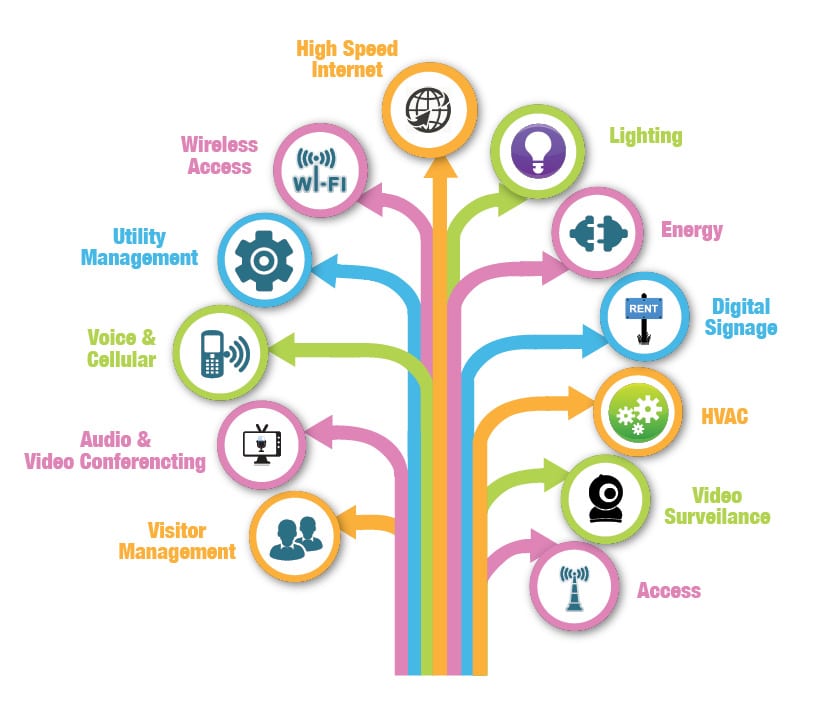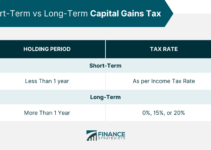The Convergence of Technology and Finance: Trends to Watch – this phrase encapsulates a dynamic shift reshaping the global financial landscape. The emergence of fintech, blockchain, and artificial intelligence (AI) are not mere technological advancements but catalysts for profound change, disrupting traditional financial institutions and empowering individuals like never before.
This convergence is creating a future where access to financial services is democratized, payments are frictionless, and risk management is redefined.
From the rise of decentralized finance (DeFi) to the integration of AI-powered financial advisors, the impact of technology on finance is undeniable. This evolution is not without its challenges, however. Navigating the regulatory landscape, mitigating potential risks, and ensuring ethical considerations are paramount as we move towards a more technologically driven financial future.
The Rise of Fintech: The Convergence Of Technology And Finance: Trends To Watch
Fintech, the convergence of finance and technology, has revolutionized the way we manage our money. It’s not just about fancy apps and online banking; it’s about disrupting the traditional financial system and creating a more accessible and efficient financial landscape.
From payments to investments, fintech is changing the game.
Fintech’s Impact on Traditional Financial Institutions
Fintech companies are shaking things up by offering innovative solutions that challenge the established order. They’re leveraging technology to provide faster, cheaper, and more convenient financial services, forcing traditional institutions to adapt and innovate to stay competitive. Think about it, who wants to wait in line at the bank when you can do everything online?
Fintech Companies Disrupting the Financial Landscape
Fintech startups are bringing fresh ideas and disrupting the financial world with their innovative solutions. They’re using technology to create new ways to manage money, invest, and borrow, making financial services more accessible to everyone.
- Digital Payment Platforms:Companies like PayPal and Stripe have revolutionized online payments, making it easier and faster to send and receive money.
- Peer-to-Peer Lending:Platforms like LendingClub and Prosper connect borrowers and lenders directly, bypassing traditional banks and offering more flexible loan options.
- Robo-Advisors:AI-powered investment platforms like Betterment and Wealthfront provide personalized investment advice and portfolio management at a fraction of the cost of traditional financial advisors.
Examples of Successful Fintech Startups
There are tons of successful fintech startups making waves in the industry. Here are a few examples:
- Revolut:A UK-based fintech company offering a mobile-first banking experience with features like international money transfers, budgeting tools, and cryptocurrency trading.
- N26:A German fintech bank known for its user-friendly mobile app and transparent fees, offering a range of banking services, including current accounts, savings accounts, and debit cards.
- Robinhood:A US-based investment platform that allows users to trade stocks and ETFs commission-free, making investing more accessible to a wider audience.
Blockchain Technology and Decentralized Finance (DeFi)
Blockchain technology is like the internet of finance, creating a secure and transparent way to record transactions. It’s revolutionizing financial systems and opening doors to new possibilities, like decentralized finance (DeFi).
The Technology’S Transformative Power article offers a fascinating look at how technology is reshaping industries and impacting our lives. From AI to Web3, this article explores the cutting-edge innovations that are driving change and creating new opportunities.
The Role of Blockchain Technology in Transforming Financial Systems
Blockchain technology is changing the game by creating a secure and transparent system for recording and verifying transactions. It’s like a digital ledger that everyone can access, making it difficult for anyone to tamper with or manipulate data.
- Enhanced Security:Blockchain’s decentralized nature makes it resistant to hacking and fraud, as there’s no single point of failure.
- Transparency:All transactions are recorded on the blockchain, making them easily auditable and traceable.
- Efficiency:Blockchain technology streamlines processes by eliminating intermediaries and reducing transaction times.
Decentralized Finance (DeFi) and Its Potential to Democratize Access to Financial Services
Decentralized finance (DeFi) is building on the power of blockchain to create a new financial system that’s open and accessible to everyone. It’s about giving people control over their own finances, without relying on traditional institutions.
- Open Access:DeFi platforms are open to anyone with an internet connection, regardless of their location or financial background.
- Transparency and Trust:All transactions are recorded on the blockchain, ensuring transparency and accountability.
- Innovation:DeFi is constantly evolving, with new applications and services emerging all the time.
Examples of DeFi Applications and Their Implications for the Future of Finance
DeFi is already making a real impact on the financial world, with applications ranging from lending and borrowing to trading and insurance.
- Decentralized Lending Platforms:Platforms like Aave and Compound allow users to lend and borrow cryptocurrencies directly, without the need for banks or other intermediaries.
- Decentralized Exchanges (DEXs):Platforms like Uniswap and SushiSwap enable users to trade cryptocurrencies directly with each other, without the need for centralized exchanges.
- Stablecoins:Cryptocurrencies like Tether (USDT) and USD Coin (USDC) are pegged to fiat currencies like the US dollar, providing a more stable alternative to volatile cryptocurrencies.
Artificial Intelligence (AI) in Finance
AI is transforming the financial industry, from automating tasks to providing personalized financial advice. It’s helping institutions operate more efficiently, make smarter decisions, and offer better customer experiences.
AI’s Role in Enhancing Financial Operations
AI is making a big difference in financial operations, automating tasks, improving risk management, and detecting fraud.
- Risk Management:AI algorithms can analyze vast amounts of data to identify potential risks and develop strategies for mitigating them.
- Fraud Detection:AI-powered systems can detect suspicious activity in real-time, preventing fraudulent transactions and protecting customers.
- Customer Service:Chatbots and virtual assistants powered by AI can answer customer queries, provide support, and personalize interactions.
The Potential of AI-Powered Financial Advisors and Robo-Advisors
AI is making financial advice more accessible and affordable with the rise of robo-advisors. These AI-powered platforms offer personalized investment advice and portfolio management based on your financial goals and risk tolerance.
Leadership is evolving, and the Leadership Reimagined: Purpose Resilience And The Next Generation article explores the key traits of successful leaders in today’s world. Get ready to learn about purpose, resilience, and the importance of fostering the next generation of leaders.
- Personalized Advice:Robo-advisors use algorithms to analyze your financial situation and provide tailored investment recommendations.
- Low Costs:Robo-advisors often charge lower fees than traditional financial advisors, making investment advice more affordable for everyone.
- 24/7 Availability:Robo-advisors are available anytime, anywhere, allowing you to access your investment portfolio and get advice whenever you need it.
Examples of AI Applications in Finance and Their Impact on Efficiency and Decision-Making
AI is already being used in various financial applications, making processes more efficient and improving decision-making.
- Credit Scoring:AI algorithms can analyze a wider range of data than traditional credit scoring models, providing more accurate assessments of borrowers’ creditworthiness.
- Algorithmic Trading:AI-powered trading systems can execute trades at lightning speed, based on complex algorithms and market data analysis.
- Insurance Underwriting:AI can analyze data from various sources, such as social media and online behavior, to assess insurance risks and determine premiums.
The Future of Payments
The way we pay for things is evolving rapidly, moving away from cash and checks towards digital wallets and cryptocurrencies. New payment technologies are emerging, making transactions faster, more secure, and more convenient.
The Evolution of Payment Methods
The world of payments has come a long way, from cash and checks to digital wallets and cryptocurrencies.
- Traditional Methods:Cash and checks have been the dominant payment methods for centuries, but their use is declining as digital options become more prevalent.
- Digital Wallets:Mobile payment platforms like Apple Pay, Google Pay, and Samsung Pay have gained immense popularity, allowing users to make contactless payments with their smartphones.
- Cryptocurrencies:Cryptocurrencies like Bitcoin and Ethereum are gaining traction as a new form of digital money, offering decentralized and secure transactions.
Emerging Payment Technologies, The Convergence of Technology and Finance: Trends to Watch
The future of payments is full of exciting possibilities, with new technologies emerging all the time.
- Contactless Payments:NFC (Near Field Communication) technology allows users to make payments by tapping their cards or phones on a payment terminal, making transactions faster and more convenient.
- Biometrics:Facial recognition, fingerprint scanning, and voice authentication are becoming increasingly popular as secure and convenient ways to verify identity and authorize payments.
- Blockchain-Based Payments:Blockchain technology is being used to create secure and transparent payment systems, reducing transaction fees and processing times.
The Impact of Technological Advancements on Consumer Behavior and the Future of Payments
Technological advancements are changing consumer behavior and shaping the future of payments. Consumers are increasingly demanding faster, more secure, and more convenient payment options.
- Increased Convenience:Digital wallets and contactless payments make it easier and faster to pay for goods and services, leading to a shift away from cash and checks.
- Enhanced Security:Biometric authentication and blockchain technology are making payments more secure, reducing the risk of fraud and unauthorized transactions.
- Personalized Experiences:AI-powered payment platforms can provide personalized recommendations and offers, improving the customer experience.
The Impact on Financial Inclusion
Technological advancements are creating opportunities to expand access to financial services for underserved populations, bridging the gap in financial inclusion and empowering individuals worldwide.
Technological Advancements Expanding Access to Financial Services
Fintech solutions are making financial services more accessible to people who were previously excluded from the traditional financial system.
- Mobile Banking:Mobile banking apps allow users to access their accounts, make payments, and manage their finances from their smartphones, regardless of their location.
- Microfinance Platforms:Fintech companies are developing platforms that provide small loans and financial services to low-income individuals and entrepreneurs.
- Digital Identity Solutions:Blockchain-based digital identity solutions can help people who lack traditional forms of identification to access financial services.
Fintech Solutions Bridging the Gap in Financial Inclusion
Fintech companies are developing innovative solutions that address the specific needs of underserved populations, promoting financial inclusion and empowering individuals.
- Financial Literacy Programs:Fintech companies are developing educational programs to teach people about financial concepts and tools, helping them make informed financial decisions.
- Savings and Investment Products:Fintech platforms are offering savings and investment products tailored to the needs of low-income individuals, helping them build wealth and achieve financial security.
- Insurance Solutions:Fintech companies are developing affordable and accessible insurance products, providing protection against unexpected events for those who were previously uninsured.
Examples of Initiatives Utilizing Technology to Promote Financial Inclusion
There are numerous initiatives using technology to promote financial inclusion and empower individuals worldwide.
The Dealbook Summit 2024: Decoding The Global Economic Outlook article provides a comprehensive overview of the current economic landscape, highlighting key factors that will shape the future of investing. Get ready to learn about the latest trends and what they mean for your portfolio.
- M-Pesa:A mobile money service in Kenya that allows users to send and receive money, pay bills, and access financial services through their mobile phones.
- Bajaj Finance:An Indian financial services company that uses technology to provide loans, insurance, and other financial products to low-income individuals.
- Kiva:A non-profit organization that uses a crowdfunding platform to connect lenders with borrowers in developing countries, providing access to affordable loans for small businesses and entrepreneurs.
Regulatory Landscape and Challenges

The rapid pace of innovation in the financial sector poses challenges for regulators, who need to adapt to new technologies and ensure consumer protection while fostering innovation.
Regulatory Challenges Posed by the Convergence of Technology and Finance
The convergence of technology and finance has created new regulatory challenges, as traditional rules and regulations may not be sufficient to address the complexities of the new financial landscape.
Want to get the inside scoop on the hottest trends in investing? Check out the Dealbook Summit 2024: Key Takeaways For Investors article for a breakdown of the biggest takeaways from this year’s event. You’ll find insights on everything from the global economic outlook to the rise of emerging markets.
- Data Privacy and Security:Fintech companies collect and store vast amounts of data, raising concerns about data privacy and security.
- Financial Stability:The rise of decentralized finance (DeFi) and other innovative financial technologies poses challenges to maintaining financial stability.
- Consumer Protection:Regulators need to ensure that consumers are protected from fraud, unfair practices, and other risks associated with new financial technologies.
Regulators Adapting to the Rapid Pace of Innovation
Regulators around the world are adapting to the rapid pace of innovation in the financial sector, developing new rules and regulations to address the challenges posed by fintech.
- Sandboxes:Regulatory sandboxes provide a controlled environment for fintech companies to test their products and services before launching them to the public.
- Open Banking:Open banking initiatives encourage financial institutions to share data with third-party providers, fostering innovation and competition.
- Collaboration:Regulators are working together to develop a global framework for regulating fintech, ensuring consistency and harmonization.
Potential Risks and Ethical Considerations Associated with Technological Advancements in Finance
While technological advancements in finance offer numerous benefits, they also pose potential risks and ethical considerations that need to be addressed.
- Algorithmic Bias:AI algorithms can perpetuate existing biases, leading to unfair outcomes for certain groups of people.
- Job Displacement:Automation and AI could lead to job losses in the financial sector, raising concerns about employment and economic inequality.
- Cybersecurity Threats:New technologies create new cybersecurity threats, requiring robust security measures to protect financial data and systems.
The Future of Finance: A Vision
The future of finance is bright, with technology playing a central role in shaping a more inclusive, efficient, and personalized financial system.
A Vision for the Future of Finance
The future of finance will be characterized by:
- Hyper-Personalization:AI-powered financial services will provide tailored solutions based on individual needs and preferences.
- Seamless Integration:Financial services will be seamlessly integrated into our daily lives, with payments, investments, and budgeting managed through our smartphones and other devices.
- Decentralization:Blockchain technology will continue to empower individuals and businesses, reducing reliance on traditional institutions.
- Financial Inclusion:Technology will continue to expand access to financial services for underserved populations, empowering individuals and fostering economic growth.
Implications for Investors, Consumers, and the Financial Industry
These trends will have a significant impact on investors, consumers, and the financial industry as a whole.
- Investors:Investors will have access to a wider range of investment opportunities and more personalized advice, making it easier to achieve their financial goals.
- Consumers:Consumers will enjoy more convenient, secure, and affordable financial services, with greater control over their finances.
- Financial Industry:The financial industry will need to adapt to the changing landscape, embracing new technologies and developing innovative products and services.
Personal Perspective on the Future of Finance
I believe the future of finance is exciting and full of potential. Technology will continue to disrupt the financial industry, creating new opportunities and challenges. It’s important for us to embrace these changes, adapt to the evolving landscape, and work together to create a more inclusive, efficient, and equitable financial system for everyone.
Conclusive Thoughts
The convergence of technology and finance is a journey of innovation and disruption, leading to a future where financial services are more accessible, efficient, and inclusive. While the path forward may be paved with challenges, the potential for positive change is immense.
As we embrace this new era, it is crucial to foster collaboration between the financial industry, technology companies, and regulators to ensure a future where the benefits of this convergence are realized for all.
Frequently Asked Questions
What are some examples of successful fintech startups?
Technology is rapidly changing the world, and the Technology’S Transformative Power article explores how AI, Web3, and other cutting-edge technologies are shaping the future. It’s a must-read for anyone interested in understanding the forces driving innovation and disruption.
There are many successful fintech startups, including:
- PayPal: A leading online payment platform.
- Stripe: A global payment processing platform for businesses.
- Robinhood: A commission-free stock trading platform.
- Chime: A mobile-first banking platform.
- Affirm: A buy now, pay later financing platform.
How is AI being used in finance?
Speaking of emerging markets, the The Rise Of Emerging Markets: New Opportunities And Challenges article dives deep into the potential and challenges of investing in these dynamic regions. It’s a must-read for anyone looking to diversify their portfolio.
AI is being used in various ways in finance, including:
- Risk management: Identifying and assessing potential risks.
- Fraud detection: Preventing and detecting fraudulent transactions.
- Customer service: Providing personalized and efficient customer support.
- Trading: Executing trades based on real-time data analysis.
- Financial advising: Providing personalized investment recommendations.
What are the potential risks associated with the convergence of technology and finance?
Potential risks associated with the convergence of technology and finance include:
- Cybersecurity threats: Increased vulnerability to data breaches and cyberattacks.
- Privacy concerns: Collection and use of personal financial data.
- Market manipulation: Potential for misuse of AI and other technologies to manipulate markets.
- Job displacement: Automation of financial tasks could lead to job losses.
- Regulatory uncertainty: Challenges in keeping up with the rapid pace of innovation.













